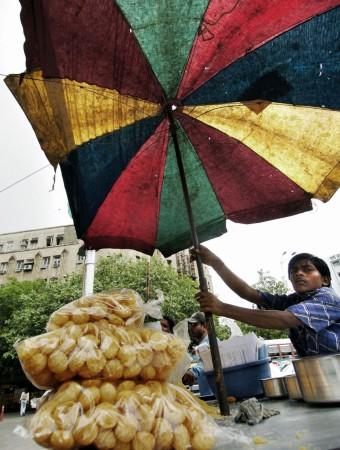
While the country is just recovering from the multiple bans imposed by the Central government, the municipality of Vadodara has taken a drastic step of banning the beloved panipuri in the city.
The municipal corporation has introduced the ban on the famous snack, due to its unhygienic method of preparation. Also called golgappas, the snacks are famous all over India and made by small vendors.
The ban comes as the country is facing heavy rains owing to the good monsoon this year, which civic authorities feel will lead to the spread of diseases such as typhoid, jaundice and food poisoning. Authorities say that the unhygienic way in which panipuris are made, along with the fact that the 'pani' or juice is exposed will lead to an increase in the number of cases of typhoid, jaundice and food poisoning.
To ensure its ban is being followed, the municipal corporation has raided several restaurants and vendors across the city in Gujarat. Health department officials threw away thousands of kilograms of the items that are used to make panipuris such as flour, oil, potatoes and water. In most cases, these items were spoilt due to being stored for so long, or simply of poor quality.
The municipal corporation of Vadodara has also raided at least 50 manufacturers across the town and threw away 4,000 kg of puris, 3,500 kgs of potatoes and kabuli chana, and 1,200 litres of acidic water as per a report by India Today.
After raiding the manufacturers, they were slapped with notices for not maintaining hygienic conditions. Officials also asked them to stop manufacturing until they improved their facilities and the overall health condition of the city improved.















